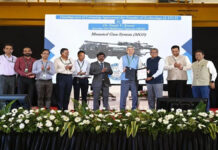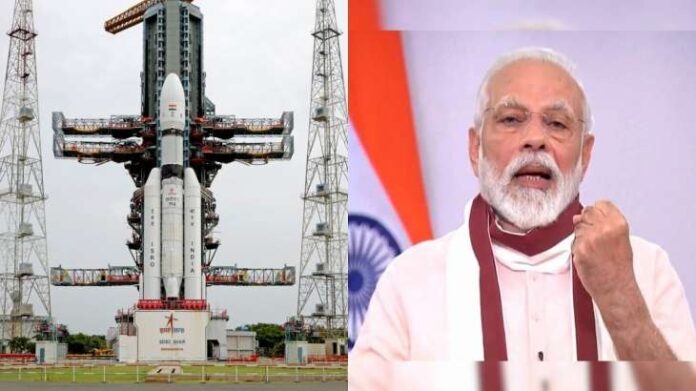Chandrayaan-3 launch: With the clock ticking towards the Indian Space Research Organisation’s (ISRO’s) much-anticipated launch of the year, Prime Minister Narendra Modi extended his best wishes for the Chandrayaan-3 mission.
He also urged countrymen to gather more information about this mission and the strides India has made in the field of space, science and innovation. “It will make you all very proud,” he wrote on Twitter.
The Prime Minister also mentioned about Chandrayaan 2, saying its key scientific outcomes include the first-ever global map for lunar sodium, enhancing knowledge on crater size distribution, unambiguous detection of lunar surface water ice with IIRS instrument and more. He claimed that his mission has featured in almost 50 publications.
PM Modi hails this remarkable mission
Hailing the mission further, PM Modi said July 14, 2023, will always be etched in golden letters as far as India’s space sector is concerned. “Chandrayaan-3, our third lunar mission, will embark on its journey. This remarkable mission will carry the hopes and dreams of our nation,” he added.
Covering over 300,000 km, it will reach the moon in the coming weeks. Scientific instruments onboard will study the moon’s surface and enhance our knowledge, he said. “Thanks to our scientists, India has a very rich history in the space sector. Chandrayaan-1 is considered to be a path breaker among global lunar missions as it confirmed the presence of water molecules on the moon. It featured in over 200 scientific publications around the world,” Modi said.
Objectives of Chandrayaan-3 mission
According to ISRO, the three mission objectives of the Chandrayaan-3 are- to demonstrate a safe and soft landing on the lunar surface; to demonstrate Rover roving on the moon and to conduct in-situ scientific experiments. With today’s event, India aims to become the fourth country to successfully achieve a soft landing on the moon. The United States, China, the Soviet Union and Israel are other countries that attempted a soft landing on the moon. Except for Israel, all three were successful in making a soft landing on the lunar surface.
Aim of Chandrayaan-3 mission
It should be mentioned here that the mission is expected to be supportive to future interplanetary missions. Chandrayaan-3 mission consists of an indigenous propulsion module, a lander module and a rover with the objective of developing and demonstrating new technologies required for inter-planetary missions. Friday’s (July 14) mission follows Chandrayaan-2 where scientists aim to demonstrate various capabilities including reaching the orbit of the moon, making a soft landing on the lunar surface using a lander, and a rover coming out of the lander to study the surface of the moon.



























